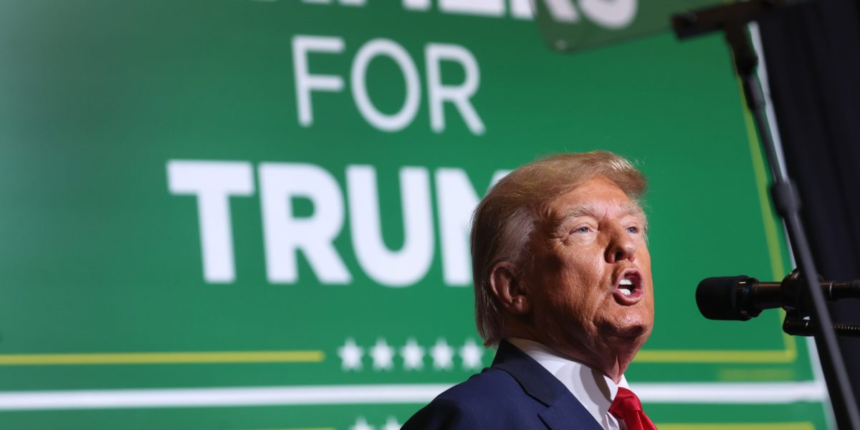President Donald Trump’s plan to use tariff revenue to bail out farmers could be stalled by the ongoing government shutdown.
“How to fund this bailout is very complicated, and different than it was in 2018,” Joe Glauber, former chief economist at the U.S. Department of Agriculture during Trump’s first term, told Fortune. “You’d need Congress to reallocate tariff revenues. USDA can’t just say, ‘We’re going to take all that money and give it to farmers.’ That takes an act of Congress, and that’s tricky when the government isn’t even open.”
Even if the White House found the money, the logistics are daunting.
“You can’t just flip a switch,” Glauber said. “The Farm Service Agency offices that process payments are closed right now. You’d have to call back ‘essential employees,’ get new regulations written, and design a whole new program. That takes time and manpower, and you can’t do that without a functioning government.”
While Trump argues that his plan will protect “our great American farmers,” Glauber cautioned that payouts can’t repair the long-term damage of eroded trust in U.S. reliability.
“Checks in 2018 and 2019 covered short-term losses,” he said, “but the long-run consequence was that China stopped seeing the U.S. as a dependable supplier. Brazil’s market share in China jumped from about 45% to 70%. Those shifts don’t reverse overnight.”
Glauber noted that while previous bailouts softened the blow, they also created a form of “moral hazard.”
“It buys off the loudest group of protestors,” he said. “Farmers don’t want to survive on bailout checks—they want to sell their crops. But these payments let policymakers off the hook.”
Other economists agree another major bailout would do no favors for farmers looking to regain global market share from South American competitors.
“It will compensate for the immediate economic losses due to tariffs, but it doesn’t necessarily improve the long-term competitiveness of agriculture on the global stage,” Wendong Zhang, an associate professor of applied economics and policy at Cornell University’s SC Johnson School of Business, told Fortune.
“You might compensate (for) losses this year,” he said, “but if trading partners see you as an unreliable supplier, they’ll go elsewhere. Prices can lure them back, but trust takes years.”









